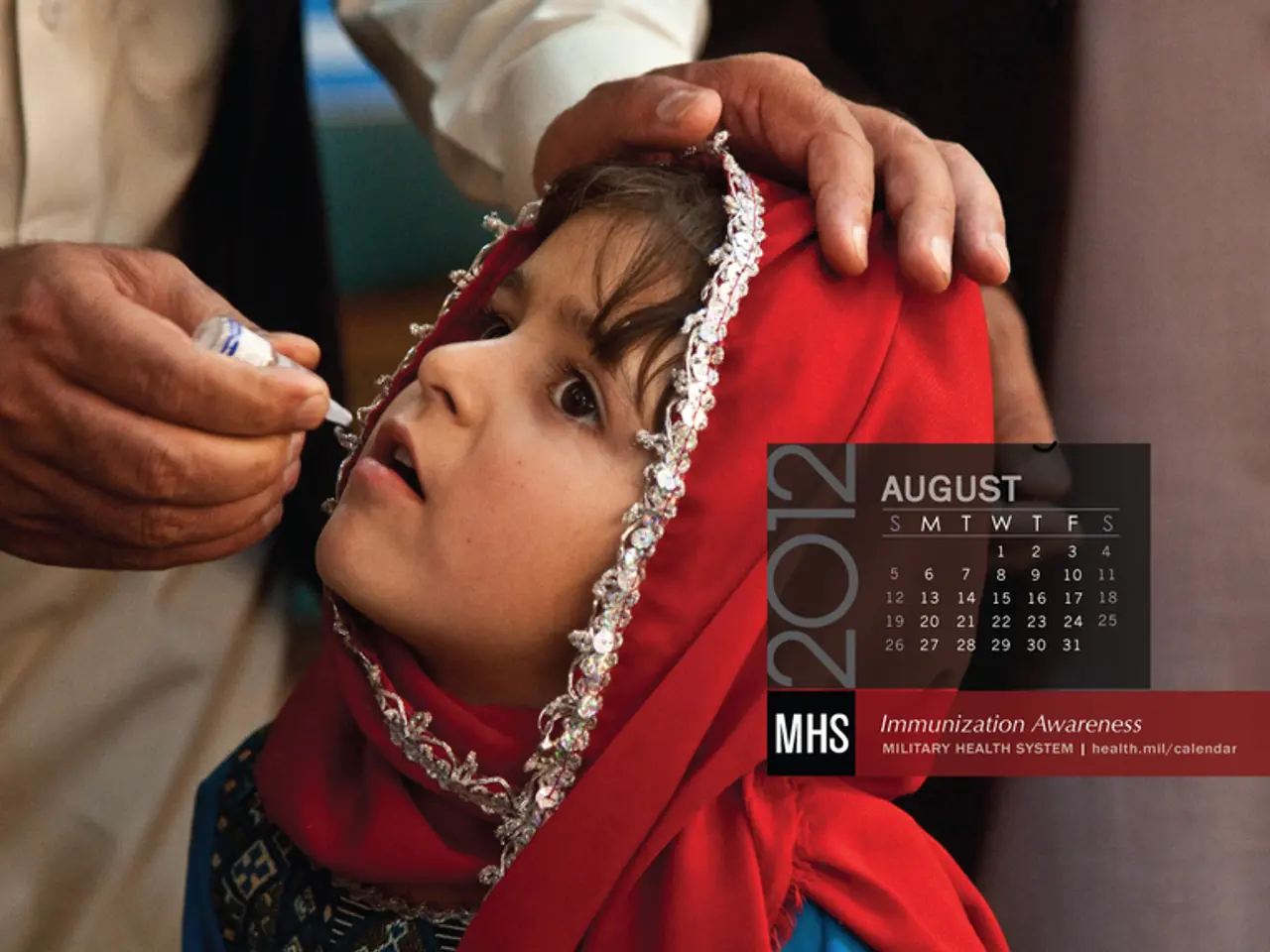Vaccination safety affirmed for expectant mothers and newborns in light of in-depth analysis of COVID-19 immunizations.
Pregnant women and their babies can safely receive mRNA COVID-19 vaccines, according to a clinical evidence assessment conducted by ECRI, a federally certified Patient Safety Organization. The assessment, which was based on a systematic review of nearly 300 studies plus additional recent research as of January 2025, concluded that the benefits of COVID-19 vaccination during pregnancy outweigh the risks for both the mother and infant [1][2].
ECRI's white paper highlights that pregnant women are at an increased risk of severe illness from COVID-19, making vaccination particularly important. The vaccines not only protect pregnant individuals but also provide protective antibodies to their babies, reducing infant hospitalization due to COVID-19. Extensive data from U.S. surveillance systems and global studies confirm no increased risk of miscarriage, preterm birth, birth defects, or other adverse pregnancy outcomes associated with mRNA vaccination [3][4].
The assessment, which is unbiased and informs clinical quality improvement and patient safety initiatives, is a valuable resource for healthcare providers, researchers, and payors looking to make informed decisions about healthcare interventions and treatments. ECRI researchers evaluate a variety of emerging topics in healthcare, including new treatments, AI-enabled medical devices, and digital health innovations [5].
Pregnant women have an increased risk of illness due to infection compared to other adults. Until January 2025, the CDC considered a COVID-19 vaccine especially important for pregnant women. ECRI's CEAs, which deliver insights that help decision-makers identify safe, evidence-based interventions, are used for clinical quality improvement and patient safety initiatives [6].
For media inquiries, please contact Yvonne Rhodes, Associate Director of Strategic Communications & Operations at [email protected].
References:
[1] ECRI. (2025). Clinical Evidence Assessment: Health Consequences of mRNA COVID-19 Vaccines for Pregnant Women and Their Babies. Retrieved from https://www.ecri.org/library/CEA/CEA_mRNA_COVID_19_Vaccines_Pregnant_Women_Babies.pdf
[2] Centers for Disease Control and Prevention. (2022). COVID-19 Vaccines and Pregnancy. Retrieved from https://www.cdc.gov/coronavirus/2019-ncov/vaccines/recommendations/pregnancy.html
[3] Centers for Disease Control and Prevention. (2022). V-Safe COVID-19 Vaccine Pregnancy Registry. Retrieved from https://www.cdc.gov/vsafe/index.html
[4] World Health Organization. (2021). COVID-19 Vaccines: Q&A on mRNA vaccines. Retrieved from https://www.who.int/emergencies/diseases/novel-coronavirus-2019/covid-19-vaccines/qas-on-mrna-vaccines
[5] ECRI. (2022). ECRI Research Priorities. Retrieved from https://www.ecri.org/research/research-priorities.aspx
[6] ECRI. (2022). ECRI Clinical Evidence Assessments. Retrieved from https://www.ecri.org/library/CEA/CEA_Index.aspx
- The benefits of COVID-19 vaccination during pregnancy outweigh the risks for both the mother and infant, as indicated in a clinical evidence assessment conducted by ECRI.
- Pregnant women are at an increased risk of severe illness from COVID-19, making vaccination particularly important, as highlighted in ECRI's white paper.
- Vaccines not only protect pregnant individuals but also provide protective antibodies to their babies, reducing infant hospitalization due to COVID-19.
- Extensive data from U.S. surveillance systems and global studies confirm no increased risk of miscarriage, preterm birth, birth defects, or other adverse pregnancy outcomes associated with mRNA vaccination.
- ECRI's unbiased assessments are a valuable resource for healthcare providers, researchers, and payors looking to make informed decisions about healthcare interventions and treatments.
- ECRI researchers evaluate a variety of emerging topics in healthcare, including new treatments, AI-enabled medical devices, and digital health innovations.
- The CDC considered a COVID-19 vaccine especially important for pregnant women until January 2025, due to the increased risk of illness due to infection compared to other adults.




